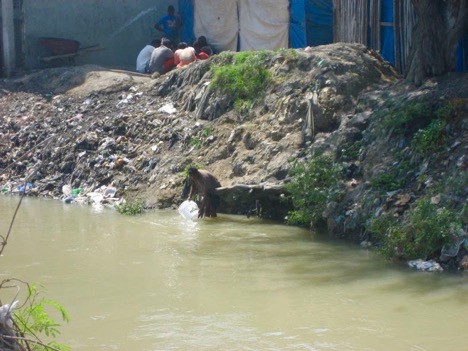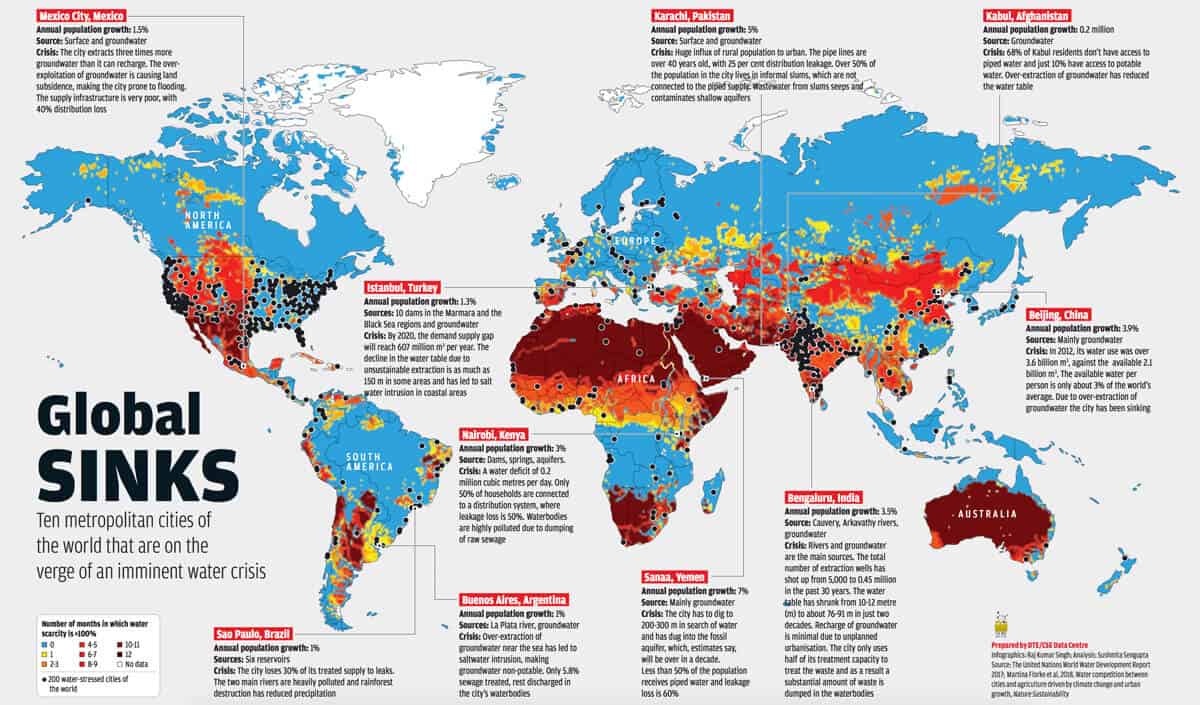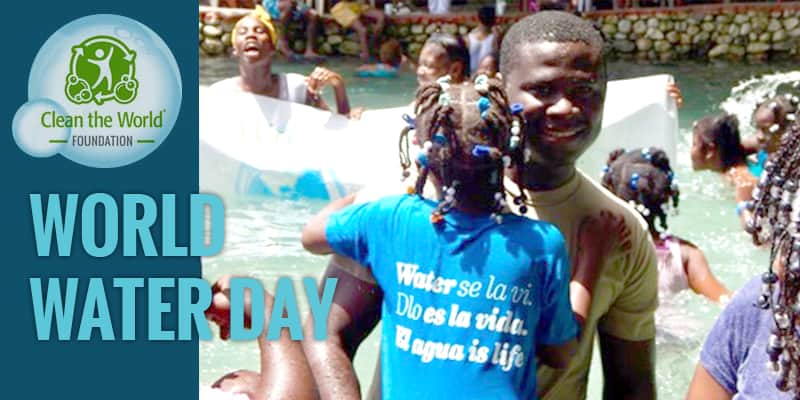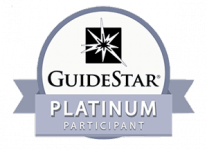Happy Thursday, and Happy World Water Day!
Out of the 71% of Earth’s water, only 3% is fresh water, and of that 3%, less than 1% is readily accessible to us as drinking water. Pretty hard to believe, right? What’s even more astounding is the number of people in this world who do not have access to clean water; 844 million people to be exact. This lack of access to water is one of the leading causes for childhood diarrheal diseases and other health issues in developing countries. At the current rate of progress in global water initiatives, everyone in low and middle-income countries won’t even have access to clean water until the year 2039. While the rate of progress is a bit slower than the United Nations Sustainable Development Goals planned, it is still progress. And we at The WASH Foundation (TWF) are doing our part in creating water accessibility for all.
As of 2016, we have transitioned from solely focusing on hygiene education to including water, sanitation, and hygiene (WASH) in our programs, the whole shebang! CTW Foundation has always made sure that there was a dependable source of water in the schools where we conduct our programs, but this year we are taking it a step further. 31% of schools worldwide do not have access to clean water. According to the United Nations, if everyone everywhere had access to clean water, diarrheal deaths would decrease by 34%. We want to help foster WASH programs that benefit entire communities, from helping to create water sources to expanding our reach into community clinics, you could say we’re doing a deep dive into WASH!
 What good is WASH education if we don’t teach the importance of water conservation along with hygiene practices? The good news is we’ve revamped our entire WASH curriculum to include important water factors; this includes where water comes from and simple ways to conserve it. This way, communities can have the water they need and the knowledge on how to use it properly. Our goal is to implement a dependable, sustainable source of WASH tools for the communities we operate in.
What good is WASH education if we don’t teach the importance of water conservation along with hygiene practices? The good news is we’ve revamped our entire WASH curriculum to include important water factors; this includes where water comes from and simple ways to conserve it. This way, communities can have the water they need and the knowledge on how to use it properly. Our goal is to implement a dependable, sustainable source of WASH tools for the communities we operate in.
The WASH Foundation strives to provide the best ways in which to implement WASH education and programs We believe that the key to global health is through clean water access and proper hygiene practices. In fact, our CEO Samuel Stephens is currently in Brasília, Brazil attending the World Water Forum in order to learn the most up-to-date information pertaining to water issues worldwide.
Speaking of water conservation, did you know that we could not last even four days without drinking water? Now imagine you’re watching the local news, and all of a sudden you see the words “BREAKING NEWS” followed by a news anchor informing you that in less than a year, the entire city will be completely out of water. While it might be hard to imagine, this kind of thing is happening as we speak. For example, the city of Cape Town in South Africa received this message after a severe drought coupled with unrestricted water use (like so many of us are used to) created a severely low amount of water in Cape Town’s reservoirs. It was so low, that in October 2017 it was projected that water would completely run out by April 2018 only five months away!
So what would you do? Would you continue to go about your day, business as usual, or would you crack down on your water usage in a last-ditch effort to conserve as much water as possible? The officials of Cape Town announced water-conserving initiatives almost immediately. This included restricting everyone in the city to only 50 liters (about 13 gallons) of water per day. Compare that to the average American using 140-170 gallons a day and you’ve got a major change to your everyday life! Furthermore, this water was only accessible to designated taps throughout the city resulting in enormous lines and waits that could last hours. It’s like standing in line for a ride at a theme park, only for life’s most basic necessity.

Map Source: www.downtoearth.org.in
http://www.downtoearth.org.in/factsheet/global-sinks-59988
This Cape Town crisis is serving as a huge wake-up for the rest of the world, and not because its situation is unique. According to research organizations and think tanks like Centre for Science and Environment, other cities are dangerously close to water crises, including Nairobi in Kenya and parts of India. In fact, it is predicted that by 2025, two thirds of the global population will run out of fresh drinking water. While we cannot reverse the effects of extremely high water consumption, we can take measures to conserve the water we have access to now. There are so many ways to reduce your use of water, but here are a few suggestions that everyone can do:
- Never let the water run
- Turn off the faucet as you brush your teeth (saving 5 gallons of water), as you wash dishes (saving around 20 gallons), even as you soap up in the shower (saving 20-40 gallons of water). All that excess water usage adds up!
- Water your plants early in the morning.
- This will save water because less sun = less evaporation = less water wasted.
- Fix any leaky faucets/appliances
- Can you believe that your little old leaky faucet can waste up to 20 gallons a day?
- Think before you flush
- Ever heard of the phrase “if it’s yellow, let it mellow”? Well there’s a reason to that rhyme – one flush can use up to 6 gallons of water!
These suggestions are not even a fraction of the things you can do to conserve water, but they’re a pretty good start. Use this World Water Day to celebrate the wonderful resource that is water, and educate yourself on ways you can help preserve it for future generations to come. You can turn off the faucet as you brush your teeth, teach others on the importance of water conservation, or even donate to help fund a The WASH Foundation WASH program. With so much you can do, we have to ask, “water” you doing for World Water Day 2018?
Sources:
https://sustainabledevelopment.un.org/sdg6
http://www.washwatch.org/en/about/about-wash/
https://businessconnectworld.com/2017/11/16/water-scarcity-problem-thats-destroying-countries/
https://www.livescience.com/29673-how-much-water-on-earth.htm
Help us get viral by sharing this page.


